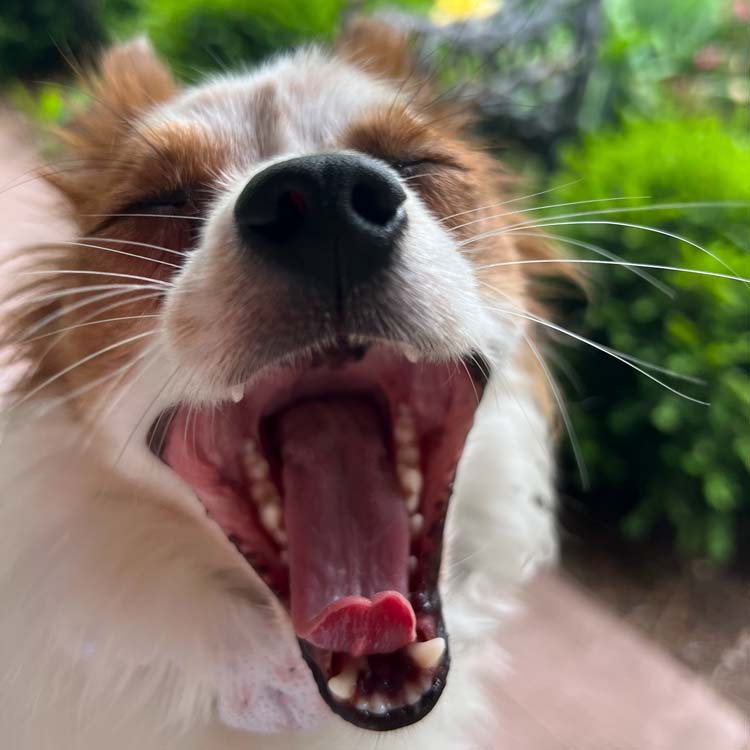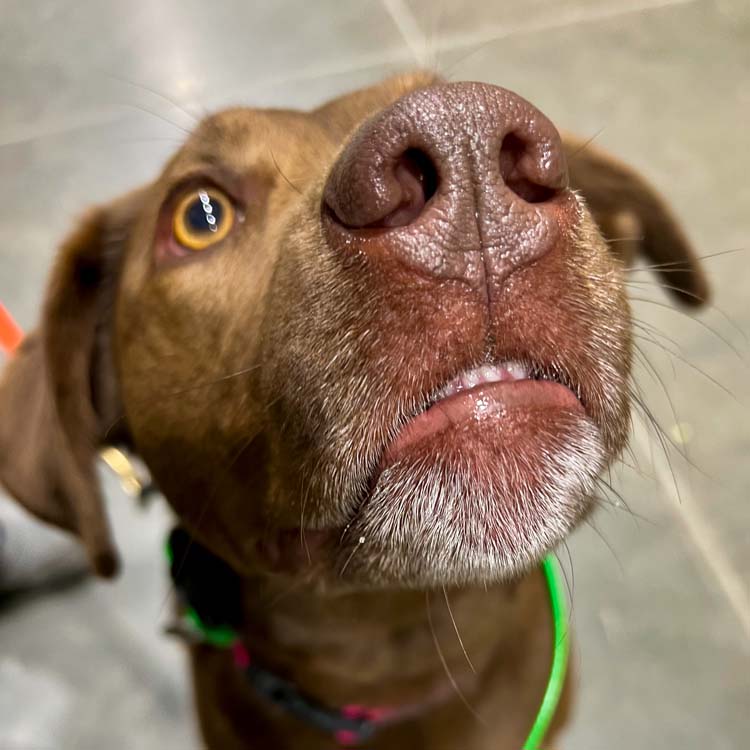As a dog owner, your mind, energy and behavior ultimately determine your dog’s behavior. Responding with your conscious mind versus reacting with your unconscious mind is the key to a successful relationship with your dog.
If we take responsibility for the mindset we are in moment to moment, we can start to piece together how and why our dog is displaying unwanted behavior.
We want to acknowledge that there are many differing opinions regarding the specifics of the subjects below. The unconscious mind, conscious mind, and other scientific or medical terms are used synonymously with what we consider to be reacting or responding in the context of the relationship between dog and owner.
When we reinforce behavior, that behavior becomes a part of their natural reaction.
Teach your dog to use their conscious brain and respond differently than how their brain is currently reacting.
Owner’s Energy
What if I told you that your dog absorbs the energy you emit and it plays a role in their behavior?
Scientists, naturalists, religious and spiritual advisors alike share the general belief that all living beings are comprised of energy and we continuously broadcast and absorb it. Energy, aura, vibes, chi, reverence, whatever you choose to call it, the concept is largely the same:
Our energy and demeanor can influence other living beings, especially our dogs.
Owner’s Behavior
A common misconception shared by many dog owners is the belief that their dog’s behavior is separate from their own. On the contrary, a dog’s behavior is greatly influenced by the owner’s. Owners who respond to their dogs with their conscious mind will experience better training results and more desirable behavior than those who react with the unconscious mind.
In order to break this down, let’s first discuss the difference between reacting and responding:
Reacting
When we refer to reacting, we are alluding to what some people might term the unconscious or subconscious mind.
The unconscious mind most often refers to underlying fears, insecurities, or anxieties from childhood or past experiences that we can operate from without even thinking.
The unconscious mind functions much like the body’s sympathetic nervous system, which is responsible for the “fight or flight” response. It is always trying to protect us, even when we do not need protecting. It oftens causes us to overthink and brood over what could go wrong.
Responding
The conscious mind is essentially your objective or thinking mind. It functions similarly to the body’s parasympathetic nervous system, often referred to as, “rest and digest”.
The conscious mind is capable of pausing before taking the next action. It creates an opportunity for us to take responsibility for our response. We can choose a different pattern. A pattern that aligns with a more desirable outcome.
When we interact with our dogs, we want to respond by using our conscious minds rather than reacting with our unconscious minds.
How It Translates
Energy and behavior (reaction vs response) co-creates the way we live with our dogs. Our responses and reactions to our dog will either nurture and reward or neglect and correct the behaviors they display.
When we reinforce behavior, that behavior becomes a part of their natural reaction. This is how we can start to change their muscle memory and shape new responses to a particular trigger.
If you disagree with an unwanted behavior, have your dog pause, and coach them on the response you want. Teach your dog to use their conscious brain and respond differently than how their brain is currently reacting.
This is where the importance of repetition comes into play. The more repetition a dog has with a new response, the more natural it will become for them. “Practice makes permanent.”
If you are feeling overwhelmed, worried, and stressed, your dog will mirror that energy.
“Practice makes permanent.”
Your Dog is Your Mirror
When we take responsibility for our state of mind and the energy we are emitting, we can start to piece together how and why our dog is exuding the same.
If you are feeling overwhelmed, worried, and stressed, your dog will pick up on that energy and become nervous and anxious, without direction.
When a dog has no direction, they tend to take the lead. With no direction from us, most dogs will default to protection mode. Unless you have a trained protection dog, you will end up with a stressed dog that is being possessive of their owner and property.
Common displays from a dog that has slipped into this state of mind include leash reactivity, guarding, and barking or lunging at others.
Most dogs will alert you to a change in your energy, usually before you even know it. My dog is my mirror. When he starts to follow me to every room in the house, I know that I am radiating unbalanced energy.
I need to take responsibility for my nervous system (the part I can control at least) and take a few minutes to breathe. To put myself in a responsive state of mind, rather than reactive. I shift my energy, so that the people and animals around me also feel that shift to calm.
Conscious Choice
You are responsible for the way you show up in this life. It’s a conscious choice. Your dog can mirror you, but they cannot shift that energy for you. Next time your dog is reacting, stressed, anxious or frantic, they might be telling you it’s time to stop and breathe.












A complete scientific description. That’s what I was looking for. I am bit confuse here. You said, your dog can mirror you, but they cannot shift that energy for you. I read somewhere that dogs tries to relax their owners if he is stressed. In this way, they tries to shift energy of human. What do you think?
Hi Jack,
Some dogs will try to shift energy. They might come to comfort you if you are sad and stressed or they might nip at kids that are too amped up to try and get them to calm down. It is important to read our dog’s energy so we know if they are uncomfortable in a situation, but this post is more focused on the importance of self reflection because our stress does and will affect our dogs. There was a recent study that shows dogs can smell stress. Check it out here https://journals.plos.org/plosone/article?id=10.1371/journal.pone.0274143